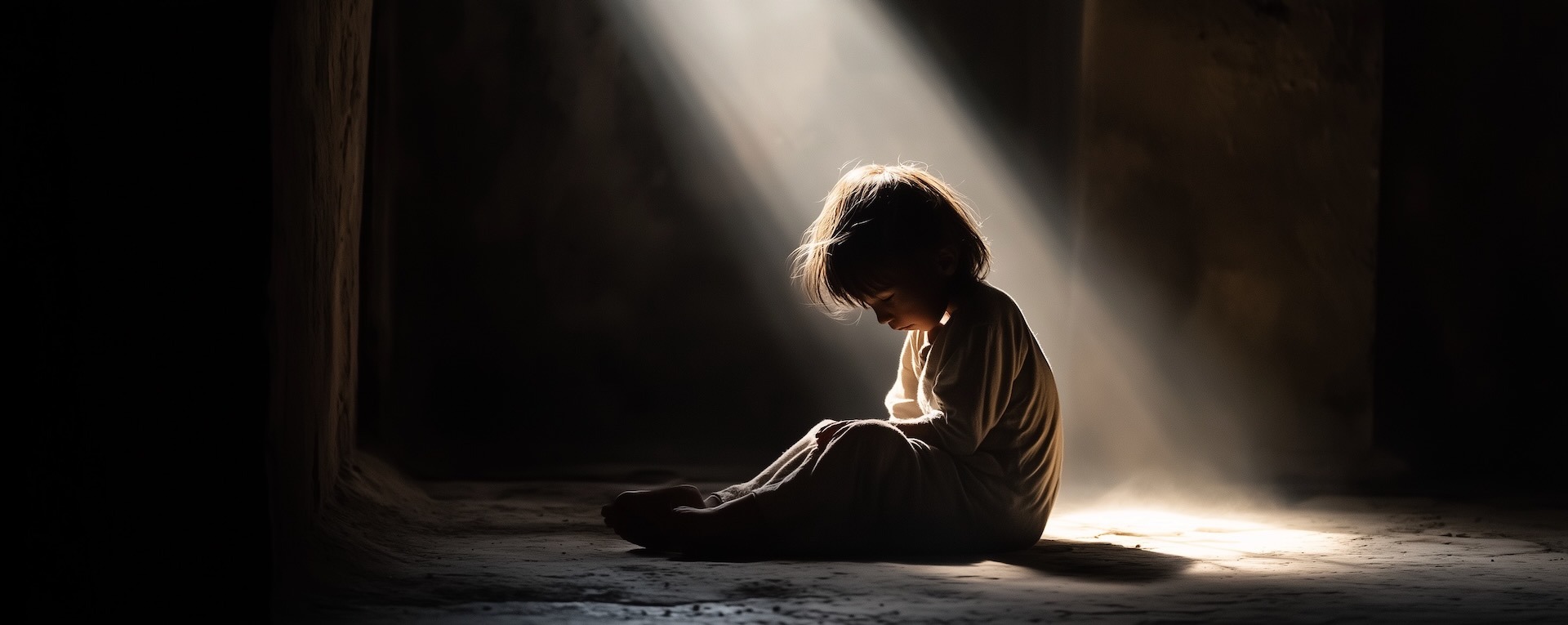
The Grand Delusion
Imagine this. You’re a terrified child alone in the dark. You’re shivering, confused, desperate for guidance, for something—anything—that makes you feel safe. Then a voice emerges from the shadows. It tells you it has all the answers, that you can be saved, loved, protected. But only if you do what it says. And if you don’t? Eternal punishment. A fiery abyss. A torturous afterlife.
Now replace the child with humanity. That’s the story of religion. And that’s how it has controlled minds, manipulated societies, and maintained power for thousands of years.
Let’s be absolutely clear. Religion is the most successful marketing strategy of all time. It’s a product sold with the most irresistible of promises: eternal salvation, divine love, a meaning to existence. And the price? Your unquestioning belief, your loyalty, your servitude.
But when belief becomes institutionalised, when it becomes weaponised, it transforms from a comfort to a cudgel. And throughout history, it has been wielded with brutal efficiency.
How Religion Controls Minds and Manipulates the World
Religion and The Business of Control
Religions claim to offer truth. But what they really offer is control. The power to dictate what you think, how you live, and who you worship. And if you dare to stray from the narrative? You’re cast out. Or worse, you’re persecuted.
Religious leaders know this. They’ve always known this. It’s why religion has been used to justify atrocities since the dawn of civilization. From the Crusades to witch hunts, from the Inquisition to modern-day terrorism, the pattern remains the same: Obey or suffer. Believe or be destroyed.
But why? Why are religions so desperate to convert others, to crush dissent, to spread their influence to every corner of the globe?
Because Insecurity Breeds Aggression
You see, if a belief system was truly infallible, it wouldn’t need to defend itself so viciously. It wouldn’t need to force compliance or eradicate dissenting voices. Real truth doesn’t fear scrutiny. But religion does. It fears critical thinking, alternative ideas, and anything that threatens its carefully constructed narrative.
That’s why the very existence of differing beliefs is considered dangerous. Not because those beliefs are inherently harmful, but because they challenge the authority of those who claim to speak for God. And those who dare to question? They’re labeled as heretics, blasphemers, infidels. Convenient, isn’t it?
The Real Motivations Behind Persecution
The true motives are disturbingly simple: Power. Influence. Wealth. Control.
1. Psychological Manipulation:
• Fear is a powerful motivator. Convince people their souls are at stake and you’ve got them by the throat. You can control their actions, their thoughts, their very sense of self. The promise of heaven or the threat of hell? It’s emotional extortion at its finest.
2. Cultural Domination:
• When missionaries swept through Africa, Asia, and the Americas, they weren’t just spreading the word of God. They were erasing cultures, languages, and entire belief systems. Why? Because true power is not just about controlling individuals—it’s about reprogramming entire societies.
3. Political Leverage:
• Religion is a convenient tool for those in power. Kings, emperors, politicians—they’ve all used faith to justify conquest, oppression, and genocide. And when religion controls the masses, the leaders who control religion have ultimate authority.
4. Financial Exploitation:
• The Church sold indulgences, promising salvation for a price. Megachurches today sell their own brands of salvation, with preachers living in mansions while their followers struggle to get by. Salvation has always been for sale to those who can afford it.
The Fear of Losing Control
When belief systems feel threatened, they lash out. Whether it’s through violence, censorship, or psychological manipulation, the goal is the same: Crush the opposition. Preserve the power. Maintain the illusion of infallibility.
And when conversion is no longer enough? Persecution becomes the answer. Just look at the persecution of “witches” in Europe, the forced conversions of indigenous peoples, the countless wars fought under the banner of God.
Or let’s get more contemporary. The systematic discrimination against atheists, LGBTQ+ individuals, women, and anyone else who dares to challenge religious dogma. It’s all about preserving control. Because a belief system that cannot control its followers will eventually fall.
Religion Isn’t About Faith Anymore—It’s About Monopoly
The truth is, most religions are more interested in expanding their influence than truly enlightening humanity. They want obedience, not understanding. They want compliance, not contemplation. Because a thinking population is dangerous to those who thrive on blind devotion.
Ask yourself this: Would a truly loving, all-knowing, and benevolent God demand such cruelty in His name? Would He require persecution, violence, or genocide to spread His word?
And here’s the uncomfortable truth: Religion is used as a tool to control, suppress, and dominate. It is the most efficient psychological prison ever created. And its chains are forged with fear, conformity, and tradition.
Breaking Free From The Delusion
But what if we dared to reject that control? What if we chose to live without demanding an answer, without needing to be validated by a higher power? What if we simply accepted that life is meant to be experienced, not explained away by outdated doctrines or manipulated for profit and power?
If humanity is to truly advance, we must tear down the systems that exploit belief for control. We must have the courage to think for ourselves, to confront the uncomfortable possibility that the meaning we seek does not exist beyond our own existence.
Religious persecution isn’t about faith. It’s about control. And it’s time we woke up to that reality.

“Beneath The Stars,” a song which I wrote and produced, explores the universal human quest for truth and meaning, highlighting how, despite following different paths and religions, we are all ultimately searching for the same answers. The question is, are we looking in the right place?
I hope it resonates with you. If it does, please consider following me on my YouTube Channel for more thought-provoking music and content.
© 2025 Peter Pickering. All Rights Reserved, All Wrongs Reversed.


